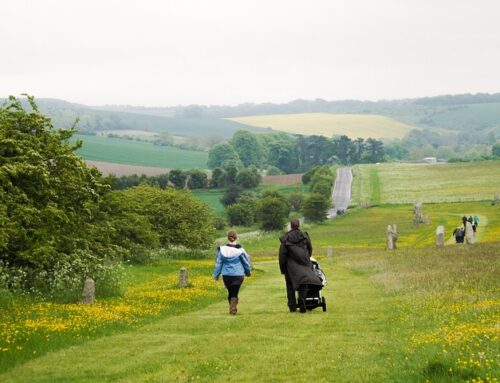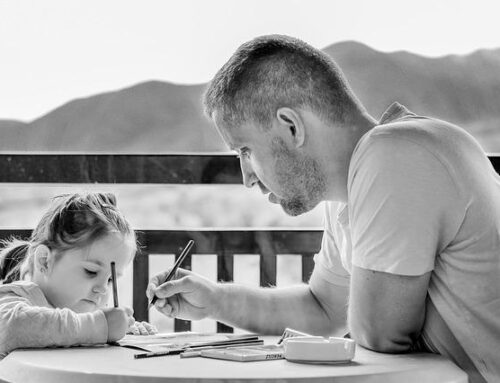Life is full of disappointments, right? There are always going to be things that don’t go the way that you
expect them to go. What do you do when things go sideways? What do you do when you have a plan, and things don’t fall into place? These moments make life the roller coaster that it is. Don’t get me wrong, I’m not putting down roller coasters. Roller coasters can be a lot of fun! I love a good roller coaster. So, let me rephrase this metaphor; Life can be like a roller coaster in a dark room.
While waiting in line for a usual roller coaster, you get a chance to see the entire track. You know where the corkscrews, loops, and drops are. You can mentally prepare for them. If you’re like me, you take an extra ginger pill just to be sure you’re ready for what is about to happen. The anticipation is thrilling because you have a plan, or at least a rough outline. From the first major drop to the train pulling into the station, you have somewhat of an idea of what to expect. While waiting, you can also read the statistics of the ride. You may know how tall it is, how fast it goes, and exactly how many times your stomach will be flung upside down.
Life can be just like that roller coaster. However, for most people the reality is that someone turned out the lights. The ride is completely in the dark. In this reality, you are waiting on the platform excited to squeeze yourself into that tiny seat with a safety harness that you will check at least 20 times before and after the ride attendant has checked and gestured the all-clear sign. You still have a rough plan in your head of what may happen. You know where you currently are (in line) and where you want to be (walking down the exit ramp), but you have no idea what is going to happen between those two moments in your life. While you contemplate this experience, you watch people who were before you in line, exit the train with wild expressions on their faces. Some may be laughing, while others may be ill. Either way, you are in for a ride!
How then do you prepare for this experience? That all depends on the 1 of 2 choices in which you routinely choose from when you are governing your life.
The first is to try to control every aspect of your life. To make sure that everything goes precisely as planned. This means that you have to anticipate everything and be able to plan for anything. This takes a lot of mental energy and can lead to a lot of disappointment and anxiety.
The second option is to accept that control is an illusion. To believe that the only thing that you can control is how to respond to things in life. Don’t misunderstand, this isn’t a way to live in a world without personal responsibility. It is a way to accept whatever life hands you.
Let’s address the notion of control. The idea of control gives you the sense of safety. The potential to determine an outcome so that you feel like you are steering your life. It’s a mental game. A way to help manage anxiety. You make the schedules, you pick the directions in your life, and you choose what it is that you believe you want. You make lists, pie graphs, flow charts, spreadsheets, etc. All in an attempt to make yourself feel better in moments that are uncertain. You may also participate in the mental exercise of worry. Worry is the use of mental energy to focus on a potentially negative outcome. It is another attempt to make you feel better and in control about a situation where control does not exist.
While you are worrying and making those choices, the outcome of what will happen will remain elusive. As I mentioned earlier, that idea of control is an illusion. The only thing you have control over is how you respond to your environment. Even neuroscience shows that after the age of 35, you are only conscious of 95% of your daily life. This means that in many cases, you are not even aware of how you respond to things! A few months ago, something happened in my day. After a few minutes of my daughter watching me, she told me that she could tell that I was angry. I didn’t think I was giving any indication that I was. How did she know how I was feeling when I didn’t say anything, and I wasn’t acting in a manner that would give her that impression? The answer is that I was unaware of my unconscious body language. Apparently, when I am angry, I blink a lot and rapidly. She lovingly pointed out what I was completely unaware of.
So, the only thing that we have control over in life is how we respond. In addition, this is only when we are consciously aware of our choices and responses. While waiting in line for a roller coaster, I am consciously aware that I am taking another ginger pill to make sure my stomach can handle the ride. I have choices in how I handle my mental response as soon as I am aware of myself feeling anxious.
So, how are you able to hand over the reins of control in your life? How can you not allow yourself to feel victimized by the unforeseen barrel rolls and loops in your roller coaster? Here are some ways that will allow you to prepare for your ride while you check your safety harness multiple times as I do.
- Rewrite your expectations. Unmet expectations are a leading cause of anger. Be aware of what you expect from yourself, those around you, and your environment. Not only be aware of them, communicate them. Everyone has their own expectations, and more than likely, yours don’t match up with others in your life.
- Worrying is not preparation. Instead of worrying, begin to make a plan for some potential outcomes. If you have a plan to implement, then there is no need to worry. If there is honestly nothing you can do in your situation and no plan can help, then worrying is useless.
- When you feel like there is nothing in your life’s situation where you have any control, begin small. Start to identify what it is that you do have control over. What shirt will you wear today? How much sugar do you want to put into your coffee? Do you even want to have coffee today? Wait, is that really a question?
- Shift your awareness to the outcomes that you want to see. Your neurons form relationships with one another. The more you routinely practice a thought processes, the more you reinforce those relationships. You have neurological relationships that allow you to tie your sneakers, drive your car, brush your teeth, and yes – worry. The more you are aware of how you think and behave, the more you can place your attention on focusing on what might be the potential positive outcomes instead of the negative ones.
- Where the mind goes, the body follows. The more you worry, the more anxious you will feel. The more you try to exude control over things in your life, the more tense your body will become. If you are a fan of Princess Elsa, I would suggest heeding her advice. Do I really need to say it? Find something else that is healthy where you can channel your mental energy. Exercise, yoga, meditation, cooking, and yardwork to name a few. When you channel your thought process into something more productive, like the examples mentioned, your body will follow your thinking and feel less tense. The brain is not aware of what is happening in our experience versus what we tell it as what is happening. This is easily seen by the body’s response of tension when thinking about a potential negative outcome that hasn’t even occurred. Focus your attention on the potential positive outcome. Your physical body will follow that as well. Regardless of the outcome of the situation, the time spend while waiting will then physically experienced by wherever you place your attention.
- Accept what is currently happening. You have a choice in your life; to accept things or not to accept things. What choice makes you feel more grounded in the present? The choice is yours to consciously make. A freeing feeling can also be felt when you choose to accept whatever an outcome may be.
- Finally, if these suggestions aren’t helping, call The Center for Trauma, Stress, and Anxiety to make an appointment. Our phone number is (443) 567-7037.





Leave A Comment